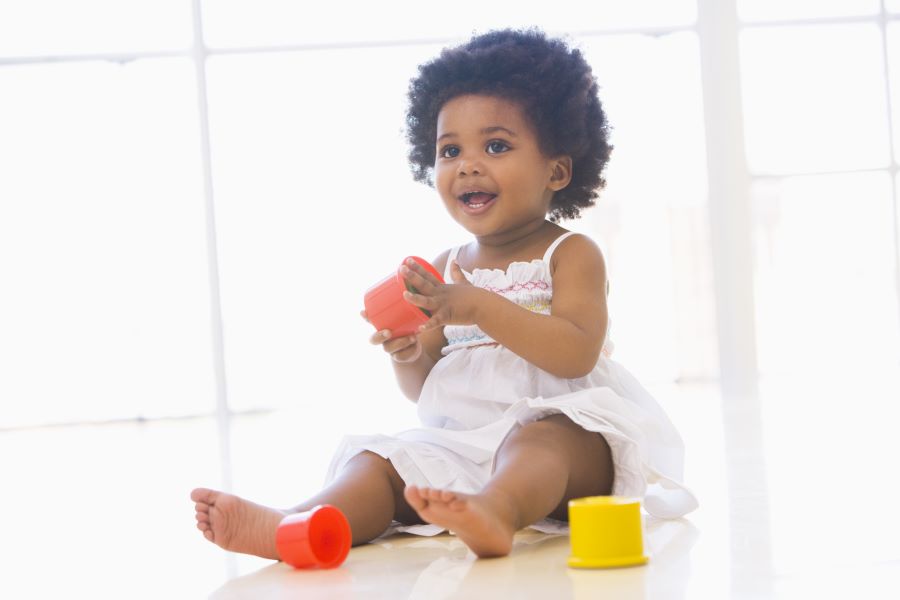Do Younger Siblings Start to Talk Later Than Older Siblings?


If you are a parent of more than one child, at times it may seem like your older child does all the talking for your younger child. Parents may think this means a younger sibling’s language will be slower to develop, however, research tells us this is not the case. Being a later-born child does not cause a language delay. Various research studies show there are differences in the language development of younger and older siblings, but these differences do not indicate delays. Here are some of the differences, in general:
Older siblings are sooner to acquire 50 words (considered a language milestone) than younger. That’s not to say that older siblings will always have a greater vocabulary. Research shows that younger children catch up quickly and the difference does not last.
Older siblings use more advanced grammar at an earlier age than younger.
Younger siblings use more advanced pronouns (like “mine” and “yours”) at an earlier age than older siblings.
Younger siblings show more advanced conversational skills than older.
Despite subtle differences, younger siblings’ and older siblings’ language development is the same overall.
There are theories as to why first-born and second-born children show differences in their early language development. The differing language environments of earlier-born and later-born children seem to play a role. First-born children may receive more individual attention than second-born children, which can enhance their language development. On the other hand, second-born children can gain valuable language input as they listen to and take part in conversations between their older siblings and parents.
If your younger child is not meeting language milestones on time, don\’t assume that birth order is the culprit. Instead, seek out an evaluation by a speech-language pathologist to assess your child’s language and look for any potential problems.
Sources:
- Berglund, E., Eriksson, M., Westerlund, M
- (2005)
- Communicative skills in relation to gender, birth order, childcare and socioeconomic status in 18-month-old children
- Scandinavian Journal of Psychology, 46, 6, 485-491.
Hoff-Ginsberg, E - (1998)
- The relation of birth order and socioeconomic status to children’s language experience and language development
- Applied Psycholinguistics. 19: 603-629.
Oshima-Takane, Y., Goodz, E., Derevensky, J - Birth Order Effects on Early Language Development: Do Secondborn Children Learn from Overheard Speech? Child Development
- 67; 2: 621-634.
Tomblin, J - B
- The effect of birth order on the occurrence of developmental language impairment
- The British Journal of Disorders of Communication
- 1990; 25(1):77-84.
Powered by Bundoo®










































